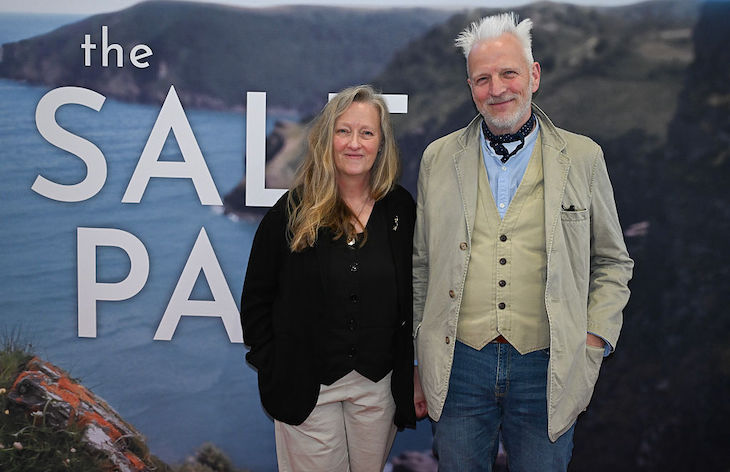The burden of higher taxation must fall on those with ‘the broadest shoulders’, says the Prime Minister, and City folks assume that means yet more raids on banks. Soft targets because no one loves them, they have also profited from higher interest rates. But they’re already subject to a surcharge on corporation tax and an extra levy on the size of their balance sheets – one effect of which has been to shrink their appetite for the corporate lending which is essential for Labour’s growth ambitions.
Loans to small- and medium-sized enterprises fell for five successive quarters to the end of last year and the level was still lower in Q1 2024 than in Q3 2022. Ask any of our Economic Innovator Award entrepreneurs how difficult it is even to open an account, never mind asking for an overdraft. The Chancellor’s priority should not be to treat banks as tax ATMs but to push them to support business customers better.
The McJobs generation
‘My first job was at McDonald’s when I was 16,’ says an Innovator entrant who runs a flourishing high street chain. ‘Mine too,’ chips in one of the judges, now a senior City financier, ‘and my whole hockey team.’ Fifty years ago this week, adverts appeared for £26-a-week opportunities in the UK’s first McDonald’s outlet, due to be opened in Woolwich by DJ Ed ‘Stewpot’ Stewart on 12 October. That anniversary has been promoted all summer, offering a chance to ponder its implications for inflation (burger, fries and shake, 48 pence then, £6.69 now) and public health: after half a century of fast food, the UK is the fattest nation in western Europe and the ‘birthday special’ 780-calorie Double Big Mac won’t help.
But more important is the question of whether all those starter jobs in McDonald’s and Burger King turned out good or bad for the career prospects of the teenagers concerned. As far back as 1996, Labour politicians were preaching against supposedly dead-end burger-flipping, especially on what came to be known as zero-hours terms – and I was writing here in its defence, pointing out that it taught responsibility, punctuality and teamwork as preparation for grown-up employment and self-betterment. Whether that argument can be applied to today’s legion of disappointed graduate baristas is not so obvious, but I sense yesterday’s ‘McJobs’ generation has no regrets.
Hero of Grangemouth
If Sir Jim Ratcliffe can’t make a go of Grangemouth, no one can. Ratcliffe’s petrochemical conglomerate Ineos has owned Scotland’s only oil refinery for almost two decades and invested £1 billion there, despite relentless hostility from the left-wing Scottish establishment. Leaders of the Unite union hate him even more, having been trounced by him in a hard-fought dispute at the plant in 2011. Lately it has been losing £400,000 per day and Ineos has confirmed plans to convert it to a fuel import depot, with the loss of 400 of its remaining 450 jobs. According to Unite, that’s ‘an act of industrial vandalism’; according to Ineos, it’s inevitable given Grangemouth’s high cost base relative to global competitors. Meanwhile, alternative buyers look unlikely to shape up.
Ratcliffe’s public standing has risen since he invested £1.3 billion for a 28 per cent stake in Manchester United, sidelining the even more despised Glazer family. But given that he’s the only Briton of his generation to build a world-scale industrial business, the media’s habitual caricature of him as a capitalist monster has been disgraceful. The Scots should salute him for keeping Grangemouth alive so long.
Rail marathon
Forgive a trainspotting diversion, but I’m on a railway marathon this month, for Innovator judging and other reasons: well over 3,000 miles on 22 services run by seven operating companies. Anecdotal it may be, but with one journey in three suffering serious delays, I’d say my tour is as fair a way as any of assessing whether Labour’s plan to bring train operators under public ownership within a ‘unified governance structure’ might please passengers or make them even angrier. Here’s what I found.
Most delays are caused by failures, cock-ups (how is it possible for mid-evening mainline services to be held behind a slow freight train?) and trespass in the track-and-signal fiefdom of nationalised Network Rail. Only one longueur was attributed to a resting driver – but it’s surely no coincidence that fellow passengers complain most about operators such as TransPennine and LNER which have already returned to state hands but are also held to ransom by Aslef, the drivers’ union. Meanwhile there’s plenty of new rolling stock run by privatised operators and their on-train crews are generally keen to help, whereas station staff are too often not. My preliminary advice to ministers? Drop the anti-privatisation rhetoric, learn from the best private operators, invest more in the infrastructure you already control and rein in the unions. Some hope.
Angela’s blessing
I’ve also been flying – from London City airport, where Angela Rayner appalled climate activists last month by approving an annual capacity increase from 6.5 to nine million passengers. I wonder whether she had calculated that fewer financiers and investors from the City and Canary Wharf will quit the UK altogether after the forthcoming Budget if they can ease their tax position by frequent-flying from a nearby mini-airport. It’s certainly where I’d suggest parking your private jet, but the car journey to central London is a nightmare so you’ll need a helicopter as well unless you love the ramshackle Docklands Light Railway. Or perhaps a bankers’ consortium might revive the riverboat shuttle to the terminal that failed when the airport itself was struggling some years ago: these days, it seems, anything’s possible with Angela Rayner’s blessing.








Comments